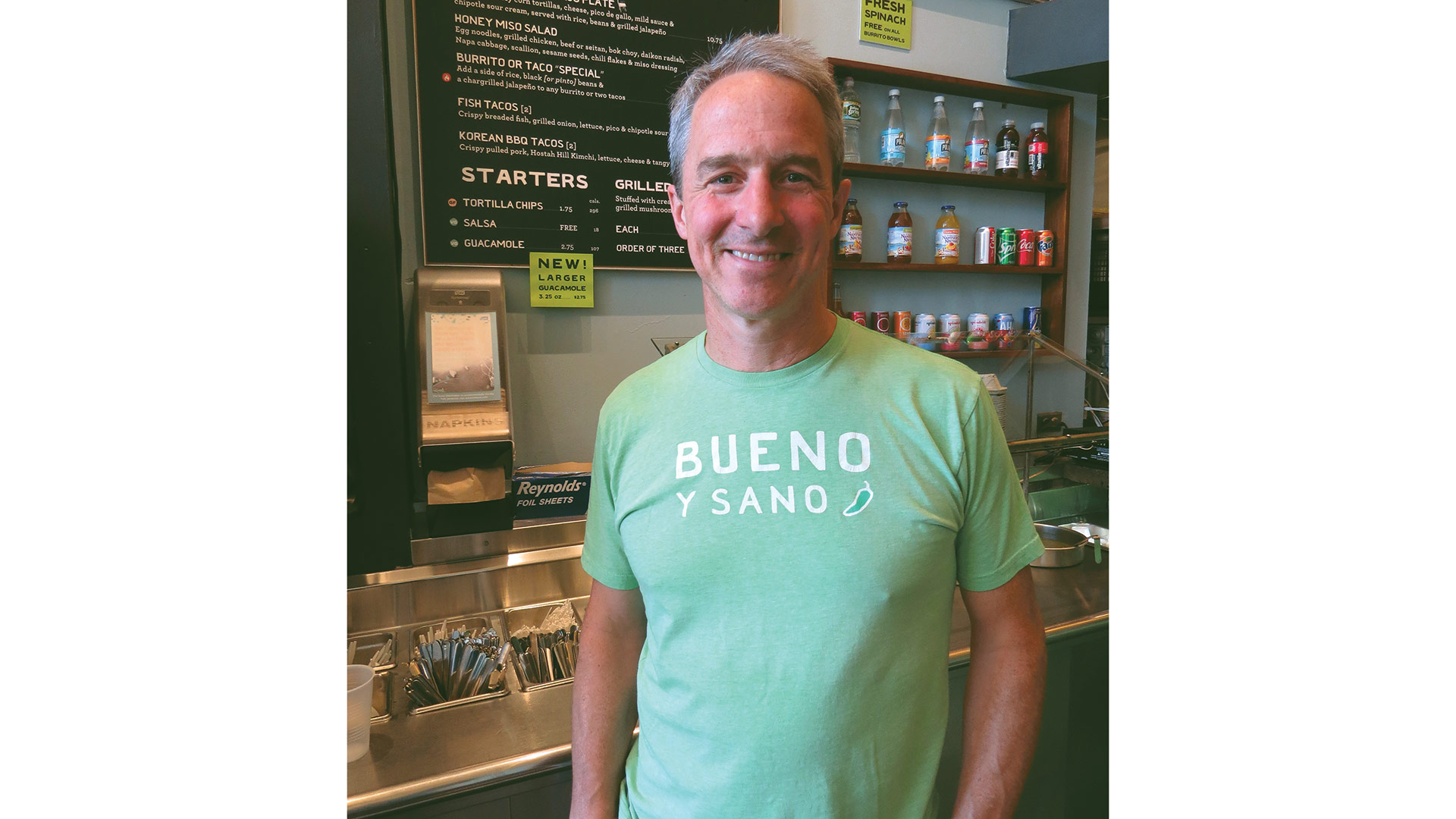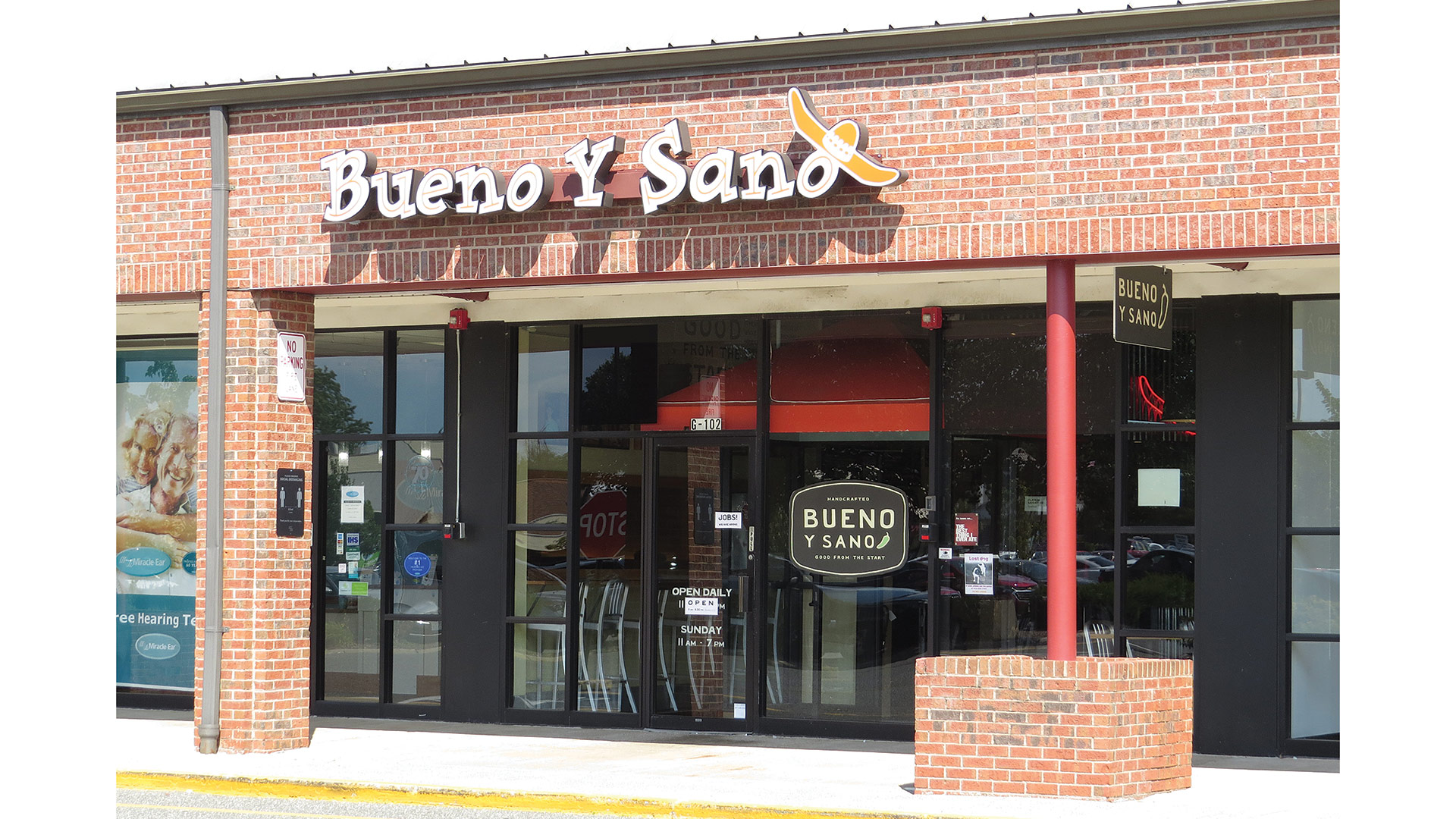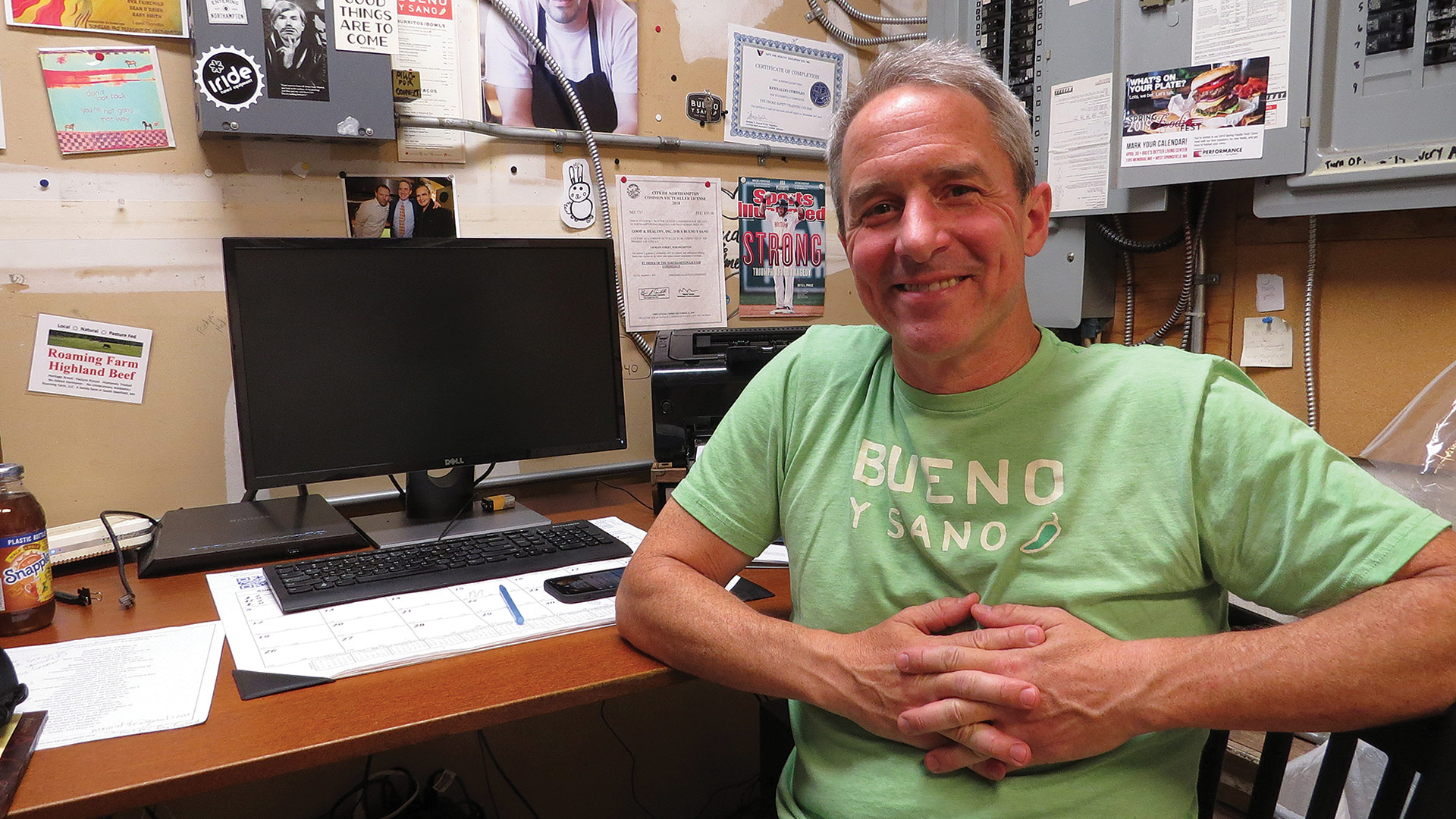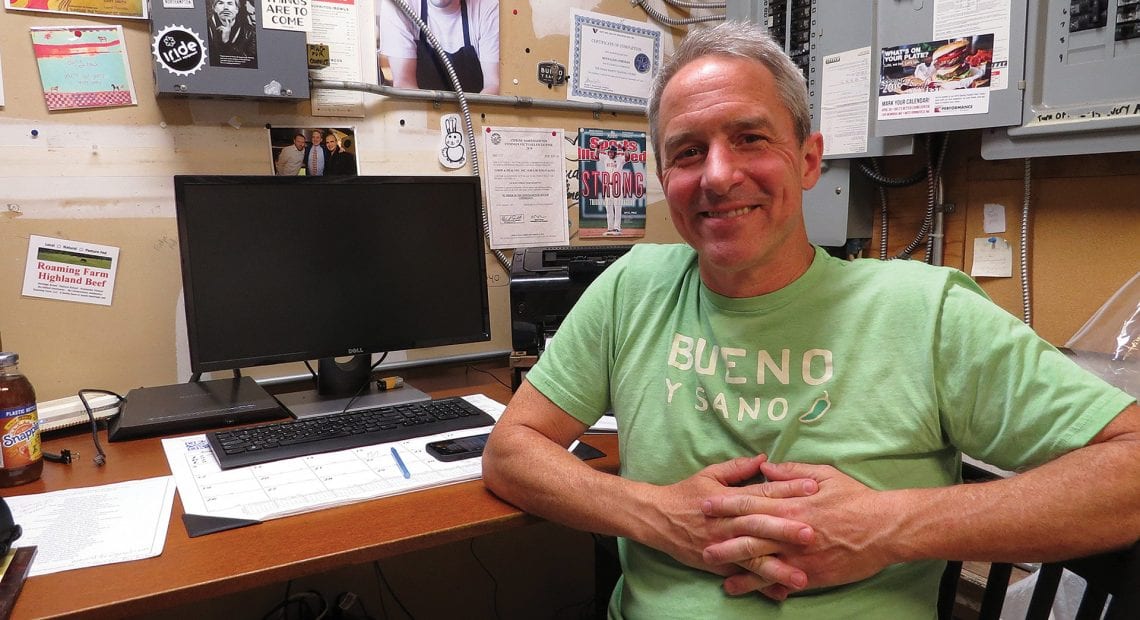Study In Entrepreneurship

Bob Lowry calls it his ‘list-in-the-back-pocket’ technique.
That’s because it concerns a list he used to keep his back pocket — a list of ideas about how to make his emerging chain of fresh-Mex restaurants, Bueno Y Sano, better and more responsive to customers. It wasn’t what was on the list at any given time that was important, but rather how he handled the discussions that came up with employees about these items.
“Especially early on,” Lowry explained, “when we had a million things to figure out, I would keep a list in my pocket of the things I observed around our operation that we could improve or change; if I had an idea, I’d put it on the list. We’d have more or less regular meetings — every couple of weeks, we’d sit down as a staff, and I would ask them for their ideas.
“I’d say, ‘what do we need to do?’ ‘What do we need to change?’ ‘How do we get more organized?’” he went on. “They would have their ideas, and half of their ideas were the same ideas that I had. But instead of saying, ‘I already had that on my list,’ I’d say, ‘good idea, we’ll do it.’ In that way, it’s their idea, not my idea.”
Lowry talks about this technique often, and especially with the students in the “Introduction to Entrepreneurship” class that he teaches at the Isenberg School of Management at UMass Amherst. He uses it to demonstrate the power of positive reinforcement, the kind that was drilled into him when he first read Dale Carnegie’s classic How to Win Friends and Influence People, which serves as the textbook, if you will, for that class.
“Back then, the food at UMass was terrible. Most universities were already off to the races, but UMass was still stuck with food that wasn’t that great. So everyone was starving.”
“That notion of making the other person feel that the idea is theirs is right out of How to Make Friends — it’s a chapter,” Lowry told BusinessWest, adding that positive reinforcement is just one of the principles he focuses on not only in the classroom, but in his business. You might say he practices what he teaches.
All of which has helped him take Bueno Y Sano from that single store he started with in Amherst back in 1995 to what could be called a chain.
There are now locations that he owns in Amherst, Northampton, South Deerfield, and West Springfield. There is also a location in South Burlington, Vt., managed by Lowry’s brother, Will; another in Springfield owned by a business partner; and a store in Acton, Mass., owned by Lowry’s stepbrother.
It’s a thriving enterprise — one that actually managed to increase sales at some of its locations during the pandemic — that keeps Lowry busy enough so that he’s unsure if and to what degree there will be more expansion.
“Those things tend to pop up out of nowhere — it’s an organic thing,” he explained, adding that there are ongoing discussions about another location in the Acton area. “We’re not in a rush to have a big company at all. We have enough restaurants; we might have more, we might not.”
These days, Lowry spends his time “troubleshooting,” as he put it.
That’s how he described the practice of driving back and forth between locations, talking with staff, dealing with problems and issues that may arise, and, yes, coming up with ideas that go on a list, one that now resides in his briefcase and not in his back pocket.
He’s still giving employees credit for the ideas that he had already written down on his list, and that’s one of many reasons he’s quite content with a personal and professional life that meets a basic requirement he set a long time ago — working for himself rather than someone else.

The West Springfield location in the Riverdale Shops is one of the later additions to the growing portfolio of Bueno Y Sano locations in Western Mass. and beyond.
“I knew I did not want to work for a company — it was deep within me … I just knew that wasn’t going to be fun for me,” he recalled. “I might have been wrong — I’m sure there are jobs out there that would have been fine — but still, it wasn’t what I wanted. And I knew that when I was 12. I knew I wanted to do fun stuff, and jobs didn’t seem like fun to me.”
For this issue, BusinessWest talked at length with Lowry about what he did want, and did get: the opportunity to work for himself. We also talked about what he’s learned and now passes on to students and a few mentors, especially about that concept of success in business, how it’s defined, and how it’s achieved.
As one might say in his industry, it’s food for thought.
Taste of Success
Lowry was quick to note that, at one time — soon after graduation from UMass Amherst — he did, in fact, have a job.
It was with State Street Bank as a mutual fund administrator.
“I got an interview through somebody’s girlfriend; she knew someone who could get me an interview,” he recalled. “They hired me because they needed people — they hired like 500 people a year. I wasn’t good at the job, but I didn’t die, though, and I would have been OK, but…
He voice trailed off, and he didn’t really finish the sentence, because he wasn’t in that job long before he came back to the Amherst area to visit friends who had not yet graduated. And it was on that trip that he famously spotted a ‘for-rent’ sign on a property in downtown Amherst and began thinking seriously about a burrito shop there.
Many in this region now know the story of how Lowry called the number on that sign, found out the location was already (or soon to be) under contract, but kept on pursuing the dream at another nearby location. With a rough business plan and a $20,000 investment from his father, the 24-year-old Lowry opened Bueno Y Sano just four months after he originally started thinking about his concept.
That thinking was blended with solid research in the form of surveys that revealed a real need for such an establishment, said Lowry, who noted that, upon opening, the Amherst location struggled mightily to keep up with heavy demand — and for a reason.
Indeed, this was 1995, years before UMass Dining reinvented itself and eventually earned a place near and then at the top of the annual rankings for best on-campus food.
“Back then, the food at UMass was terrible,” Lowry recalled, speaking from personal experience and anecdotal information. “Most universities were already off to the races, but UMass was still stuck with food that wasn’t that great. So everyone was starving.
“We couldn’t keep up — for years,” he went on. “Back then, we were doing three times the business we’re doing now in Amherst, adjusted for inflation. We were serving three times as many people back then as we do now, because UMass food is now some of the best in the world, so students don’t go out to eat as much.”
Still, the Amherst location, and the others as well, are faring quite well amid what has become a boom in Mexican fare, and especially fresh-Mex food, one that has helped fuel expansion of Bueno Y Sano well beyond its downtown Amherst roots.

Bob Lowry says he long ago learned the importance of positive reinforcement, and he passes that message along to those he teaches and mentors.
Indeed, while a location that opened in Boston not far from Boston University quickly proved a bust — “we didn’t do any business in the evening because BU had awesome food” — the others have generally thrived, although the location in West Springfield in the Riverdale Shops hasn’t generated the traffic that was anticipated.
“We’re not a college-town place,” Lowry explained. “It’s a very broad market that we serve. Mexican food … if it’s not the biggest sector right now, it’s going to be, and soon. And we’re fresh Mex, quick service, which has grown like a weed ever since the day we started. There are probably 250 fresh-Mex, quick-service places in Massachusetts right now, where back then, there were probably 10, including us.”
The popularity of fresh Mex certainly helped Bueno Y Sano weather the pandemic, said Lowry, adding that, in 2020, the company registered roughly 75% of the sales it would during a normal year by focusing entirely on takeout and benefiting greatly from an online ordering system that was put in place before COVID-19 but not used extensively until the pandemic arrived.
“The Acton and Springfield locations actually did better than they did the year before,” he explained, adding that the company continues to do a great deal of business via the takeout route, with perhaps 80% of sales coming that way, while before the pandemic, it was probably 50%.
Hot Stuff
Flashing back to the days when he conceived Bueno Y Sano, Lowry said fresh Mex was a solid idea and, as things have turned out, a solid business proposition.
But it was also a means to an end — an opportunity to do what he wanted and not do what, deep down, he knew he couldn’t do — work for someone else.
“The things that go with a job were not motivating to me,” he explained. “I wanted to be the boss. I wanted to make decisions and do the fun stuff if I wanted to.”
Elaborating, and putting to work a phrase one hears often these days, Lowry wanted a business he could work on, not in.
“The vast majority of entrepreneurs get stuck working in the business as opposed to on it, and that’s a big trick,” he told BusinessWest. “That was part of my vision from the very, very first thought: I’m going to work on it, and other people can work in it. And it’s going to be fun, and people are going to like working for me because I’m not going to step on my feet by discouraging people.”
Expanding on that thought, Bueno Y Sano has become the kind of business he can work on, not in, he said, adding that he’s involved day to day, but there isn’t anything approaching micromanagement. He has put aside time to do other things, like teaching entreptreneurship, which creates an important balance — and often more fun.
He said the class, which he’s been teaching since 2006, has several components, including a pitch contest, the textbook, and guest entrepreneurs (he’s one of them) who will share experiences from their ventures and adventures. Over the years, a number of students, maybe 40 to 50 by his count, have gone on to start their own businesses.
Lowry said the teaching has been … well, a learning experience for him while standing at the front of the classroom, one that has given him great clarity about what works in all workplaces, and especially his.
“When they’re the boss, most people have as their first reaction the thought that their job is to catch people doing things wrong and tell them about it. But with just a small adjustment in philosophy, they could understand that their job is to catch people doing things right and tell everyone about it. And if they did that, they would be much more successful.”
With that, he returned to his chosen textbook, How to Win Friends and Influence People, which is subtitled The Only Book You Need to Lead You to Success, commentary he agrees with wholeheartedly.
Slicing through its 288 pages, he said it provides a roadmap for being not necessarily a popular leader (although that, too), but an effective one.
“Don’t criticize, condemn, or complain,” he said, while listing some of the tenets he has long lived by. “Show people genuine appreciation; let the other person feel that the idea is his or hers; give people a reputation to live up to; avoid arguments; be a great listener. These are the things you need to do as a leader and business owner.
“I’m always learning to be a better listener, and I’m always learning to take advantage of positive reinforcement,” he went on. “When they’re the boss, most people have as their first reaction the thought that their job is to catch people doing things wrong and tell them about it. But with just a small adjustment in philosophy, they could understand that their job is to catch people doing things right and tell everyone about it. And if they did that, they would be much more successful.”
And while this approach, or attitude, is one that works for entrepreneurs, it does for everyone else as well, he noted.
“If I can help them see what works with people, then I will have succeeded,” Lowry said in conclusion. “Because all of them will use it in their lives, whether they’re entrepreneurs or not. Positive reinforcement works much better than negative reinforcement. If you take it to heart, you can enjoy management and help people grow. The success of the people in your business is your success.”
Bottom Line
Getting back to that list of ideas that he used to keep his back pocket and that now mostly resides in his briefcase, Lowry said that, during those staff meetings — both years ago and quite recently — he would often get around to some of those items he had written down that hadn’t been addressed to that point.
“Half the time, they had a better idea than me, but at the end, I would have a few ideas left on my list, and I would say, ‘what do you think about this, and what do you think about that?’” he explained. “People are much more open to things after you’ve listened to their ideas.”
That’s another lesson that he passes on to his students, many of whom share his lack of enthusiasm, if not fear, of working for someone else.
In his case, that fear led to opportunity, and a chance to not only be successful in business, but also impart lessons to others on how to do the same.
In both cases, Lowry has certainly been a class act.
George O’Brien can be reached at [email protected]





